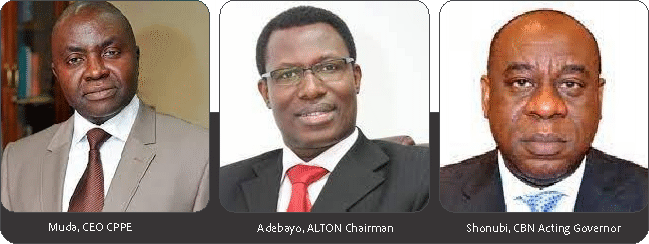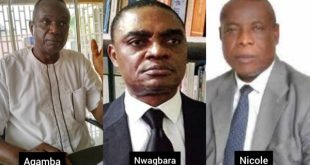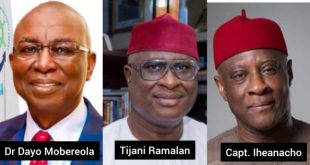By Babajide Okeowo
Mrs Bukola Awe depends on the Unstructured Supplementary Service Data (USSD) platform for carrying out banking transactions. She transfers money from her account to her son’s account using *894#, the short service code of one of the Deposit Money Banks (DMBs) in the country, buy airtime and pay some essential bills.
She has been worried since she got wind that Telecommunications Companies in the country are set to disconnect DMBs from accessing their services.

If the disconnection threat is carried out, it means that she won’t be able to transfer money to her son anymore using the USSD code or recharge her phone as she does not own a smartphone.
“I don’t know how I will be able to send money to my son and buy a recharge card for myself from my account, so, these people should please, resolve whatever differences they have so that I can continue enjoying the services,” she said.

USSD banking is an SMS-based mobile banking service, where a USSD short-code is used to access financial services like transfers, bill payments, and airtime recharges, among others.
According to data released by the Nigeria Inter-Bank Settlement Systems (NIBSS), the data showed that between January and December 2020, the value of USSD transfers increased from roughly ₦30 billion to ₦551 billion.
Continuing, the data disclosed that in November 2022, transactions worth ₦38.9 trillion were performed electronically through the NIBSS Instant Payment platform (NIP).
Similarly, a survey from Agusto & Co Consumer Digital Banking Satisfaction Index for 2021 showed that USSD banking was the most popular banking platform among Nigerians.
To underscore the importance of this platform, suspended CBN Gov, Godwin Emefiele had warned that if the issue is not resolved Nigerians would suffer dire consequences, while several experts warned that it could affect the financial inclusion drive of the CBN.
“If we do not resolve the problem, the people will suffer. As we say, when two elephants fight, it is the grass that suffers.
Those that will suffer when these disagreements linger would be the users of the banking services” he disclosed.
A business analyst Chika Mbonu, believes that disconnection will affect everyone, especially the financial inclusion plan. “There are a lot of people at the bottom of the pyramid that use the USSD. Everyone who uses it and the whole system will suffer difficulties,” Mbonu explained. He stated that everyone—telcos and banks inclusive—involved in the matter may have to shift positions.
Toeing the same line, a public expert, Bala Zakka believes that the constant bickering between telcos and banks could negatively impact the sector.
“I will call for restraint because if the telcos cut off the service, losses would be huge. It may end up causing social, and industrial calamities across the board. So many stakeholders would feel the brunt,” he said.
Trouble started when the Telecommunication Coys under the aegis of the Association of Licensed Telecommunications Operators of Nigeria (ALTON), disclosed that the Nigerian Communications Commission (NCC) has granted them to disconnect Deposit Money Banks (DMBs) if they fail to pay the debt owed to them.
In a statement jointly signed by the Chairman and Head of Operations of ALTON, Gbenga Adebayo and Gbolahan Awonuga, and made available to journalists, the telecoms operators said the approval was granted because despite multiparty stakeholder efforts to resolve the situation and prevent any impact on services, led by the then Minister of Communication and Digital Economy, Prof. Isa Pantami and including the NCC, the Central Bank of Nigeria, along with Mobile Network Operators MNOs and DMBs the issues have remained unsolved.
“The DMBs have continued to incur greater and greater debt, without making commensurate payments. Every time some progress is made, the DMBs come up with reasons to take stakeholders several steps back, in this matter”.
ALTON said members of the public would recall that MNOs and DMBs have had protracted disagreements concerning the appropriate USSD pricing model for financial transactions, transparency of charges, mode of collection and liability for payment of the outstanding and continuous service fees due to the MNOs (which currently stands at over N120 Billion).
There are also worries that if this threat is carried out, it will hamper te financial inclusion drive of the CBN as the National Financial Inclusion Strategy 2022 places high priority on financial and digital learning as a strategy that would enable the creation of a conducive environment for serving or ensuring the inclusion of the most excluded groups.
“We made a promise that by 2022, we would have gone close to 80 percent financial inclusion and 2024, we would have achieved 95 percent. “Unfortunately, we are where we are today which is just below the 70 percent mark” Emefiele had warned.
Proffering the way forward, Muda Yusuf, Director/Chief Executive Officer, Centre For The Promotion Of Private Enterprise [CPPE] urged the Acting CBN Gov, Folashodun Shonubi to as a matter of urgency wade in to save the day and resolve the impasse.
Yusuf, a former Director General of the Lagos Chamber of Commerce and Industry, LCCI in an exclusive chat with MMS Plus disclosed that it is important for the Acting CBN gov to wade into the issue urgently.
“This is a very, very important and critical issue that the CBN needs to quickly weigh into. Both the CBN and the Nigerian Communications Commission (NCC) as they are both regulatory agencies over-sighting these two sectors in the economy”
So, he should meet both the banks and the telcos to resolve it and it should not be difficult to resolve because as you have said the money has already been deducted from the end users so it’s just for them to just remit it which should not be a difficult thing to do.
So, the regulatory agencies need to weigh in on this quickly and ensure that the right thing is done because consumers the end users should not begin to suffer for the negligence of failing to comply with policies among these institutions, so, I think the CBN should weigh in on this quickly” he added.
 MMS PLUS NG – Maritime, Aviation, Business, Oil and Gas News Online Newspaper with coverage in Maritime, Oil and Gas, Aviation, Power and Energy as well as Financial News
MMS PLUS NG – Maritime, Aviation, Business, Oil and Gas News Online Newspaper with coverage in Maritime, Oil and Gas, Aviation, Power and Energy as well as Financial News










